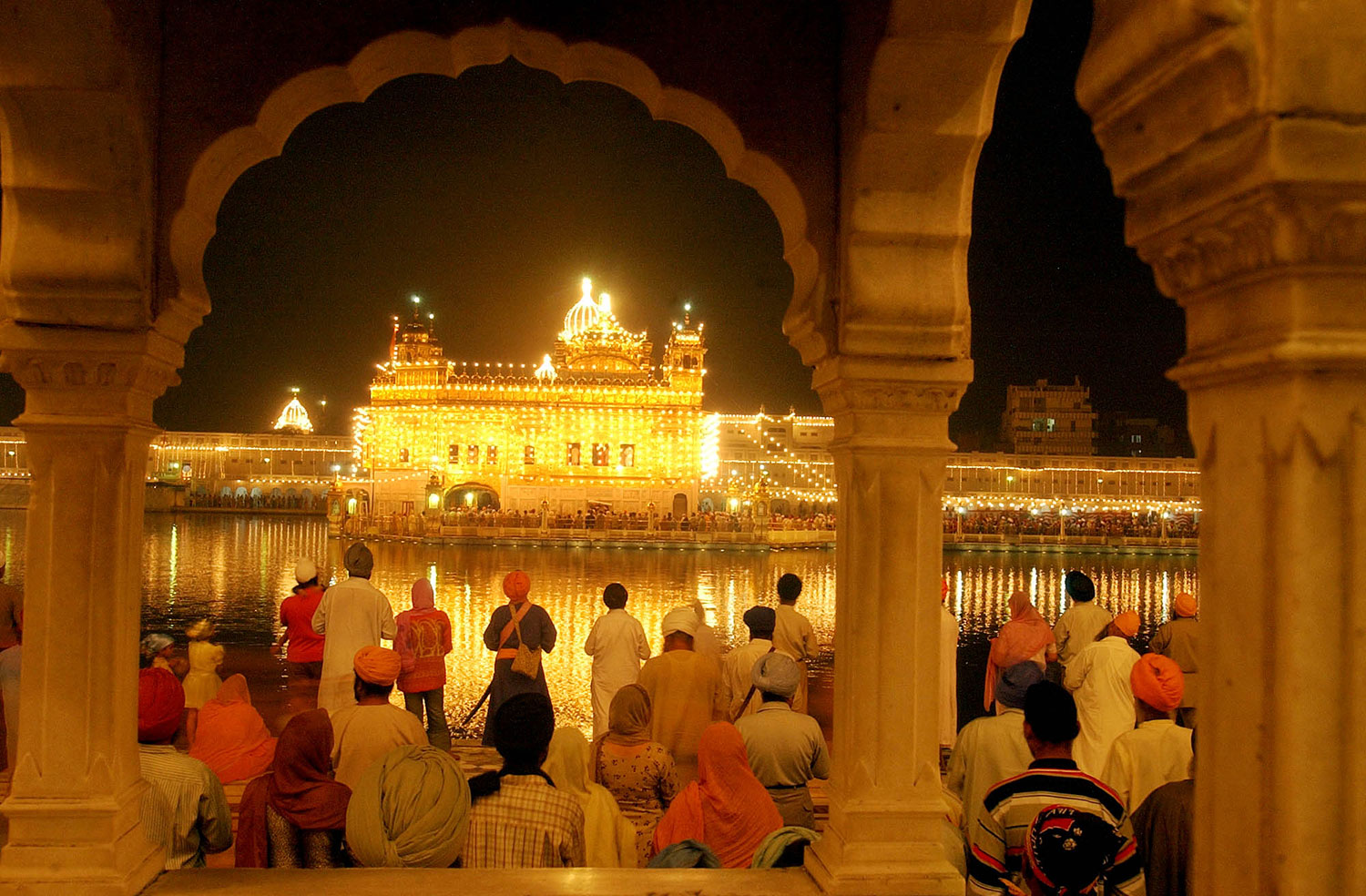
(RNS) — Monday (Oct. 20) marks Diwali, the “festival of lights” celebrated by millions of Hindus, Sikhs, Jains and Buddhists across India, South Asia and the diaspora.
Considered one of the most significant religious and cultural festivals in India, for observers, Diwali symbolizes the triumph of light over darkness, good over evil and knowledge over ignorance. Its Sanskrit name, Deepavali, translates to “row of lights,” referring to the common Diwali practice of lighting oil lamps, called diyas, in homes, temples, streets and businesses.
Diwali falls on a different date in the fall every year, based on the Hindu lunar calendar. The biggest customary celebrations typically take place on the holiday, and additional religious activities and forms of worship take place across the span of five days, which this year began Saturday (Oct. 18). Many families in India get the time off work and school to spend with their loved ones.
In all its stories and observances, a common theme of Diwali persists across faiths: that even in darkness or injustice, light can prevail.
For Hindus, Diwali is tied to stories of divine victory — the return of Lord Ram to the Indian city of Ayodhya after defeating the demon king Ravana in the north, or Lord Krishna’s slaying of the demon, Narakasura, in the south. It is said in Hindu lore that the citizens of Ayodhya lit thousands of diyas to welcome Lord Ram and his wife, Sita, back to his birthplace.
Diwali also signals the start of a new financial year for many Hindus, who perform pujas, or worship rituals, to invite Lakshmi, the goddess of wealth and prosperity, into their homes. This year, Diwali also falls on the day of Kali Puja, the major festival dedicated to the goddess Kali, revered by many in West Bengal and Bangladesh.
For Sikhs, the holiday coincides with Bandi Chhor Divas, a celebration commemorating the release of Guru Hargobind, the sixth of the 10 Sikh gurus, from Mughal captivity in the 17th century. Gurdwaras, or Sikh houses of worship, will be illuminated with diyas, including the Golden Temple in Amritsar, Punjab, India, one of Sikhi’ holiest sites.
Jains celebrate Diwali as the day Lord Mahavira attained nirvana, marking the spiritual liberation that anchors their faith. Newar Buddhists in Nepal also observe the occasion, known as Tihar, with light offerings to deities.
Diwali celebrations are most often centered around the home. Families dress in new clothes, clean and decorate their spaces, light diyas and sparklers, create intricate colored powder patterns called rangoli and share gifts, sweets and meals with loved ones.
Lighting a lamp is also said to have spiritual significance, often seen as lighting the inner soul, or atman, and dispelling the darkness of ignorance and ego with divine truth and knowledge.

FILE – People watch fireworks during a Diwali celebration in Nairobi, Kenya Thursday, Oct. 31, 2024. (AP Photo/Brian Inganga)
But the social component of the festival has become increasingly popular in India and beyond, with large-scale Diwali parties, galas and bashes now the norm for celebrities and others. Large brands and fashion labels, including major retailers like Walmart and Costco, also roll out annual Diwali merchandise collections.
Diwali is also growing in mainstream recognition. As of this month, three U.S. states, Connecticut, Pennsylvania and California, have declared it an official state holiday. Politicians across the country regularly send Diwali messages out to constituents.
For American Hindus like New York City-based Anu Agrawal, who released an advent-style calendar leading up to Diwali this year from her brand, The Indian Store, this moment in time is especially significant as the holiday becomes increasingly visible and accommodated in the secular world beyond India. For example, New York City public schools are closed Monday for the holiday for the second year.
“As a child in Memphis, I felt like I had to lead two separate lives: my American life and my Indian life,” she said. “And now, fast forward 20 years, seeing how mainstream Diwali has gotten is amazing. It makes my kids feel more excited being in New York City. It’s a very special experience for us.”
